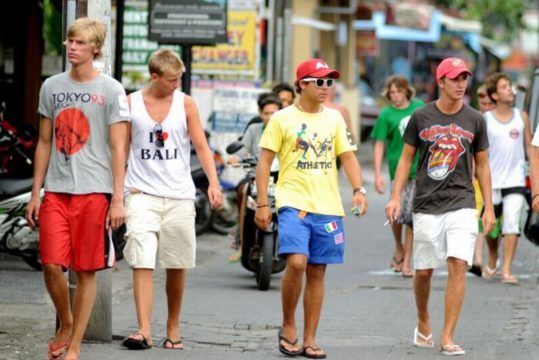The long-lasting COVID-19 pandemic has dealt the Island of Bali and its tourism industry some bitter lessons on over-dependence on foreign tourists. The closure of Indonesia to tourism by the Government of Indonesia has forced Bali tourism into a temporary period of suspension.
Domestic Tourists Sufferr Discrimination When Visiting Bali?
As reported by Balipost.com, a leading tourism educator from Bali’s Udayana University, Dr. Nyoman Sukma Arida, thinks that now is the time for Bali to stop idolizing foreign tourists. He believes that the time is nigh where Bali can no longer rely on foreign tourism.
For this reason, Sukma hopes that the Island’s tourism sector can focus on domestic tourism. In the tourism expert’s opinion, Bali’s tourism practitioners must adopt a new approach in how they operate their businesses. Speaking in a Zoom Conference held on Saturday, 21 August 2021, on “Post Pandemic Tourism and Travel Agencies in Bali,” said that academicians’ studies and research projects prove there is discrimination in how Bali treats its foreign and domestic tourist visitors. He noted that this insidious discrimination is not generally encountered in Indonesian regions beyond Bali, such as Yogyakarta and Malang, where all tourism visitors are dealt with in a more even-handed manner.
Sukma warned, “This type of discrimination cannot be allowed to continue in the future.”
Staycations in Bali
Sukma also focused on the development of the “tourism village” (desa wisata) concept, which has the potential to be combined with the seminal “staycation” programs now being promoted by the government.
In discussing staycations, Sukma said this tourism concept has emerged as a new opportunity during the current pandemic with the potential to provide positive benefits to local businesses. He cited the establishment of “glamping campgrounds” (glamorous camping) sites surrounding lakes and other locations as having great potential of generating “local” income.
In the post-pandemic period ahead, Sukma urged Bali tourism not to repeat past mistakes by becoming dependent on mass tourism and the need for large investment. Instead, Bali should try to maintain a balance between agriculture, tourism, and the small-and-medium-sized-business sector.
Greater Future Emphasis on CHSE and Sports
Putu Ayu Astiti Saraswati, the CEO of Toya Yatra Travel and Toya Devasya Hot Springs, affirmed domestic tourism’s potential, pointing out that Indonesia has a population of 271.3 million. She describes post-pandemic tourism to Bali as dependent on domestic travelers characterized by short length-of-stay and short-haul travelers. The domestic market will also see an increase in small group or family travel.
Astiti believes that domestic travelers will favor nearby tourism destinations and products that have earned Cleanliness, Health, Security, and Environmental Sustainability (CHSE) Certification. Future travelers will almost have a heightened in health and safety.
In this same vein, Astiti added, “Sporting activities will be demanded by travelers. Hiking and climbing will become more popular in the future.” Continuing, she said domestic tourists would seek out friendly destinations and are conscious of preserving the local environment. Because of a millennial shift to high-tech and digitalization, tourism operations in the future will need to improve their technological infrastructure.
Astiti also called for closer cooperation between the government and all parties involved in tourism. She opined that tourism would not be a matter of competing with other tourism operators in the future, but more a matter of Bali competing with other international destinations for domestic and international travelers.








